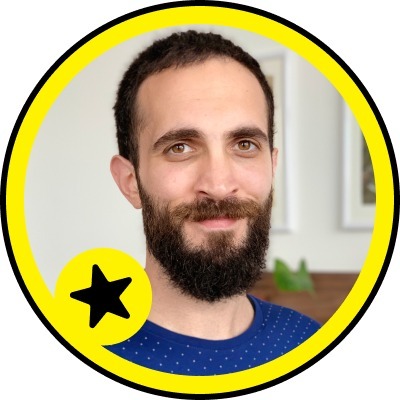Activity
Mon
Wed
Fri
Sun
Aug
Sep
Oct
Nov
Dec
Jan
Feb
Mar
Apr
May
Jun
Jul
What is this?
Less
More
Memberships
Inner Circle Mentorship
Private • 761 • Free
Facilitator Club
Public • 6.1k • Free
14 contributions to Facilitator Club
New video: Action Board Exercise **with Real-Life Client Example**
The Action Board is one of our favorite exercises at AJ&Smart. If you haven’t tried it before, you should definitely give it a go in a meeting with your team or client. This exercise is super helpful for getting a group to make a decision on something when trying to decide between a few ideas. In the video, we go over exactly how to run this exercise and we have a real example that uses sticky notes from an actual client workshop we ran recently. So you get to see a how the Action Board exercise flows and what the end result looked like. Would love your feedback on this video and would also love to know if there are any other videos that you’d like us to work on.
6
6
New comment May 14

“How do I introduce workshopping to my team..?” Baby steps for anyone feeling paralyzed...
If you’ve been wanting to introduce your team to workshopping but have been struggling to get the ball rolling, I have just the thing for you.. give this a watch and let me know what you think.
7
7
New comment Nov '23

Book recommendation: Design Journeys through Complex Systems
I want to alert the community to a book I recently acquired that I think would be really useful for facilitators working with organisational change. Peter Jones & Kristel Van Ael (2022), Design Journeys through Complex Systems. I had bought it for the focus on service design, but it provides the canvas and setup for about 30 workshops. This would be great for more advanced facilitators. To give you an idea of what it is covering, the following are the titles of the main sections: Systemic Design Methodology, Convening Cocreation, Framing the System, Listening to the System, Understanding the System, Envisioning Desired Future, Exploring the Possibility Space, Planning the Change Process, Fostering the Transition. Book website with downloadable templates here: https://www.systemicdesigntoolkit.org/download
23
8
New comment Oct '23

Hello! 👋
Hi everyone, I've just joined this community, and have been reading the brilliant posts and comments written so far, it's great to see such a sharing community. I'm currently in a Full time position as an Agile Delivery Manager, and have quite a bit of experience facilitating workshops with teams as Scrum Master/Agile Coach.. (and also been a School teacher in a previous career!) I'm thinking of moving into the world of freelance facilitation, and maybe setting up a business. Those who have gone down this route, has it been successful? Is this a career I can really 'take the leap' and make a go at?!
3
8
New comment Oct '23
Engaging activities to fuel creativity and innovation
Hi! I just accepted a new position at Kraft Heinz as a Platform Innovation Lead! I want to do a kickoff with the team to get them excited about innovation. This is a research and development group and I want to do something fun. Would love all ideas!
9
8
New comment Oct '23
2 likes • Oct '23
In our corporate training, we usually like to do part of an LDJ during the kick-off and we then pause and do a comparison between how quickly we just moved and how much we got done and how we’d only get through 10% of that in a meeting of the same length. It can be a very powerful way to show before you tell.
1-10 of 14
Active 13h ago
Joined Jan 17, 2023
ENFJ
Berlin
powered by





